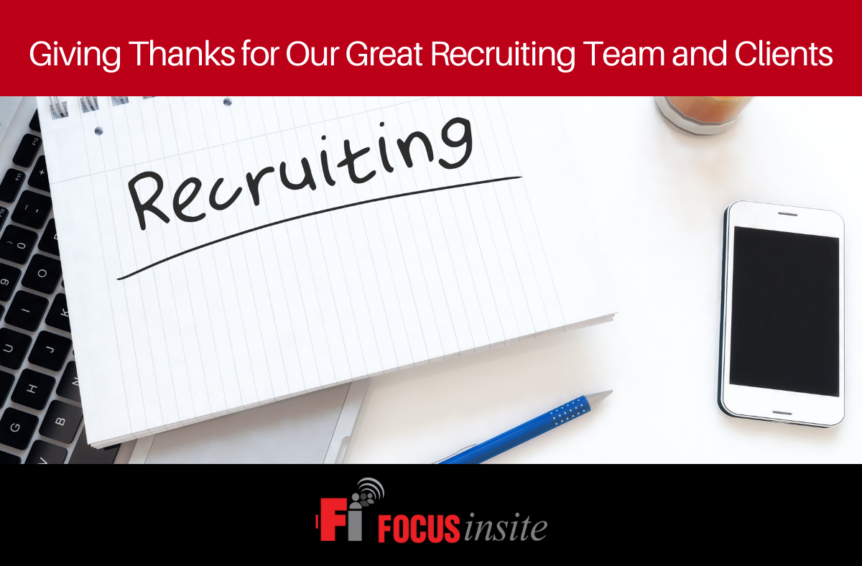For a majority of our clients we manage all aspects of recruiting for their market research study, but for some, it’s not possible to do the actual recruiting, particularly if there are privacy or HIPAA regulations that don’t allow for third parties to have direct access to names and contact information. For many of the medical surveys for cash we help recruit for, we work closely with the client to help them manage direct recruiting for their study.
If you find yourself in a similar situation, where you want to recruit participants for your study, but can’t turn recruiting over to a nationwide recruitment agency, it doesn’t mean that you have to shoulder this responsibility entirely on your own. Below is a sample of a recruiting strategy we share with our clients who are required to manage aspects of recruiting on their own. With the following example, our clients have a solid structure that helps streamline the recruiting process and make it seem less daunting.
•Background/purpose of study:
First, you must clarify the purpose of the study and come up with a concise description. Once you can succinctly describe what your study is about, you then want to clarify who will have access to the information shared in the study, and what they’ll do with the information. When it comes to healthcare studies, having answers to these questions are very important. If you can’t answer these questions when recruiting, you’ll have a much harder time convincing people to agree to participant recruitment agency .
•Who should we recruit?
Knowing whom to recruit will become apparent once you answer the above questions. The purpose of the study, and what information you’re hoping to gather will help clarify whom should be recruited for your study.
•Screening Guides:
Screening guides are essential when it comes to recruiting. This is your first opportunity to talk with potential study participants and learn who does and doesn’t meet the criteria to participate in your study.
•Procedure:
Once your screening guide is written, you’ll next want to organize how and when you’ll try and make contact with participant candidates. Write down the dates and times to try and make contact, and if you’re calling people, decide if you’ll leave a phone message if they don’t answer. Sketching out your procedural outline will give you the necessary deadlines for recruiting all the participants you’ll need for your study.
• Script for talking with recruits
Your screening guide provides some guidance for what to ask and say when talking with potential candidates, but you’ll also want to have answers to frequently asked questions. We work closely with our clients who are trying to manage their own recruiting to anticipate frequently asked questions. Our years of experience in recruiting inform us as to what types of questions to anticipate during the screening process.
• Follow-Up
Once you’ve selected your participants, the next step is to formalize their participation in your study. For medical and healthcare studies, it isn’t uncommon to sign privacy statements that meet HIPAA standards. You’ll also want to put on your calendar when to send out reminders to participants about the day/time/expectations of their participation.
The above list is an example of considerations and guidelines we help create with our clients when they’re wanting/needing to manage recruiting on their own. While many of our clients prefer to turn all aspects of recruiting over to our seasoned teams, sometimes they must manage recruiting internally. Even with internal recruiting, our teams can provide valuable input and help guide you so that your recruiting efforts are a success.
Need assistance with your recruiting? Contact us today!
Original Source: https://bityl.co/ENXR



